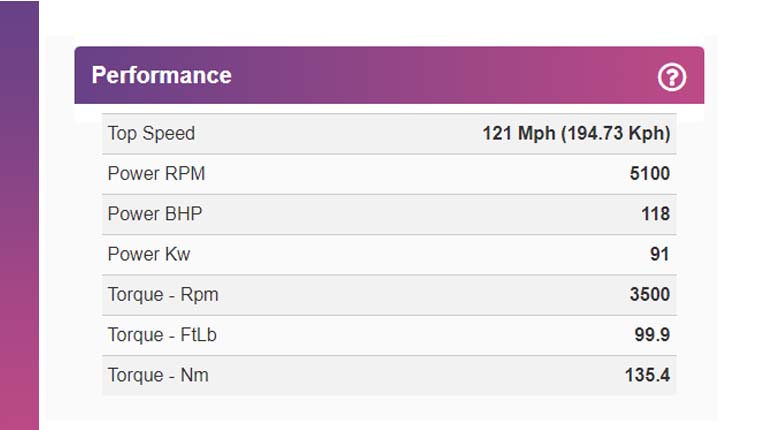A car’s performance is crucial in today’s market, and the desire for more power is ever-present. A car bhp check allows you to assess a vehicle’s capabilities and satisfy performance needs. However, it’s important to note that improving performance isn’t limited to car bhp checkers alone.
There are numerous ways to enhance your car’s power, from engine modifications to advanced driving techniques. Join us on this exhilarating journey as we delve into the world of automotive performance and uncover the horsepower behind the wheels.
Table of contents
- 1 What is BHP?
- 2 Why is a BHP check needed for a car?
- 3 Comparing HP v/s BHP v/s PS v/s kW
- 4 What is a normal BHP?
- 5 Our comprehensive car BHP check
- 6 What other factors affect the overall performance of a car?
- 7 How to find BHP on my engine?
- 8 How to find BHP in the logbook?
- 9 How is BHP measured in electric cars?
- 10 Answering your questions
What is BHP?
BHP, or Brake Horsepower, measures the effectiveness of an engine’s braking system.
It is determined by multiplying a machine’s torque output at any given RPM value by the angular velocity of the engine’s crankshaft. A bhp check can be used to troubleshoot potential issues with a motor and measure its efficiency.
Why is a BHP check needed for a car?
A BHP reg check is essential for a car because it provides valuable insights into its power and performance. By assessing a car’s brake horsepower (bhp), you can understand its engine’s strength and capabilities before any drivetrain losses occur. This information is crucial for various reasons:
Performance Evaluation: The BHP checker allows you to gauge the car’s acceleration, top speed, and overall performance capabilities. It helps determine if the car meets your desired power requirements and aligns with your driving preferences.
Comparison of Models: By comparing the BHP of different car models, you can decide which vehicle suits your needs. Whether you prioritize power, efficiency, or balance, the BHP check enables you to assess and compare different options.
Engine Health Assessment: A horsepower check can also indicate the engine’s overall health. A significant drop in power output may signal underlying issues that require attention or maintenance. Monitoring the BHP over time can help identify potential problems early on, and you can check this by getting a pre-purchase inspection from a vetted mechanic.
Modifications and Upgrades: A car performance check is vital for automotive enthusiasts when considering engine modifications or upgrades. It provides a baseline measurement to gauge the impact of enhancements on the car’s performance and power output.
Comparing HP v/s BHP v/s PS v/s kW
The power output of a vehicle is measured using several different methods.
Horsepower (HP)
The total power output of the vehicle is measured at the flywheel.
Brake horsepower (BHP)
The power output of a vehicle is measured at the wheels. This will always be lower than the HP figure as some engine power is lost (for example, at the gearbox).
Pferdestärke (PS)
This metric horsepower is within 1.4% of the BHP figure. This is now the standard unit for vehicles in Europe.
Kilowatts (kW)
A Kilowatt is the amount of energy transferred by the vehicle over time. European vehicle manufacturers also use this standard of measurement.
Power Output Comparisons
BHP – 200 BHP
PS – 203 PS
kW – 149 kW
What is a normal BHP?
A good measure of your car’s engine strength is the BHP, or brake horsepower. This measure is typically used to compare engines of the same size and kind. The typical BHP for an internal combustion engine ranges from 30 bhp in a small economy car to more than 150 bhp in some high-performance sports cars.
The bhp measures how much power an engine can produce per minute, so a higher bhp translates into greater capability when it comes to acceleration and overall speed. So, if you have a powerful engine under the hood of your car, checking its bhp can help give you an idea of how much power it holds.
Our comprehensive car BHP check
With our comprehensive BHP check, you can easily access the brake horsepower of any vehicle by entering its registration number above. The Auto Experts offer the most comprehensive free vehicle check in the UK. In addition to BHP, our report includes essential details such as the vehicle’s make, model, and fuel type.
Moreover, you’ll find more detailed information, such as its stolen status, current road tax (V.E.D) validity, complete MOT history, fuel cost estimates, and fuel economy. Count on us to provide the necessary tools for effective vehicle history research.
What other factors affect the overall performance of a car?
While brake horsepower (BHP) is a valuable measure of engine power, it doesn’t provide a complete picture of a vehicle’s overall performance.
Several other factors include aerodynamics, weight, body style, and torque. When conducting a BHP inspection, these aspects are typically taken into account to provide a thorough assessment.
In addition to BHP, the inspection report often includes:
- Make and model: Helps you understand the car specs by number plate and performance characteristics.
- Required fuel type: Important for determining the most suitable fuel for your vehicle.
- The number of gears: Influences how the car performs at different speeds.
- Engine and fuel tank size: Provides insights into the car’s range and refuelling needs.
- Power in kW and RPM: Gives you an idea of the engine’s output and speed capabilities.
- Registered top speed: The maximum speed legally allowed for the car.
- Torque: The engine’s twisting force, impacting acceleration and top speed.
Considering these factors alongside BHP provides a more comprehensive understanding of a vehicle’s performance. It lets you make informed decisions and ensures the car meets your driving preferences and requirements.
How to find BHP on my engine?
Checking bhp on an engine can be a daunting task. However, with the proper guidance and tools, the horsepower check can be done in just a few simple steps.
First, gather the required diagnostic equipment, such as a magnifying glass, tachometer, and bhp reading device. Then, locate the bhp gauge on the engine’s panel. With the bhp gauge, read the corresponding bhp value shown on display to determine how much your engine produces at different points.
Finally, compare your bhp results with guidelines to ensure your engine’s optimum performance.
How to find BHP in the logbook?
Keeping a car performance check logbook updated for those who drive vehicles is essential to ensure the car runs correctly. Many people must know how bhp can be checked on a logbook, so it can often be overlooked.
Fortunately, checking bhp in the logbook requires little time or effort. The most efficient way to check bhp on a logbook is by checking the speedometer values, indicating bhp provided the temperature, fuel and other factors are at their expected levels.
This process should provide all necessary information to accurately determine bhp values and ensure essential adjustments can be made quickly and easily.
How is BHP measured in electric cars?
In internal combustion engines, the BHP figure represents the peak power generated by the engine, which is achieved at a certain RPM. In contrast, electric vehicles can instantly produce maximum power without building up RPMs.
Comparing power figures between electric and petrol/diesel vehicles is not straightforward, as lower BHP electric vehicles can match or exceed the speed of equivalent internal combustion engine vehicles.
Answering your questions
1. Is BHP the same as horsepower (HP)?
Yes, BHP and horsepower (HP) are often used interchangeably to refer to an engine’s power output. Both terms represent the same concept of measuring the engine’s capability to work over a certain period.
2. Can I improve my vehicle’s BHP?
Yes, there are various ways to improve a vehicle’s BHP, such as engine tuning, aftermarket modifications, or adding performance-enhancing components. However, it’s essential to ensure that changes comply with local regulations and don’t compromise the vehicle’s safety and reliability.
3. Is a BHP check mandatory for vehicle registration?
The requirements for a BHP check may vary depending on the country and its regulations. In many cases, BHP checks are not mandatory for vehicle registration but are more common in performance-oriented vehicle inspections or specialized applications.








